Aligning Values With Work. An Interview with Naomi Morenzoni, Vice President of Philanthropy Strategy at Salesforce.org
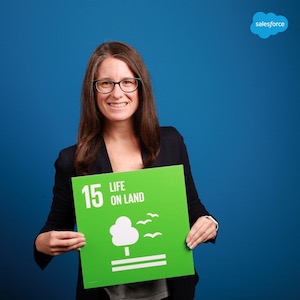 Naomi Morenzoni, Vice President, Philanthropy Strategy at Salesforce.org and Evangelist for Pledge 1%
Naomi Morenzoni, Vice President, Philanthropy Strategy at Salesforce.org and Evangelist for Pledge 1%
Naomi leads Salesforce.org’s efforts to encourage and enable companies to adopt an integrated philanthropy model, in which 1% product, 1% equity and 1% time are dedicated to improving communities around the world. She also heads Salesforce’s strategic community engagement and philanthropic partnerships through which they seek to work collaboratively with other grantmakers and CSR leaders to drive collective impact.
Twitter: @mandelstein
Message from the Author
As someone who has dedicated their life’s work to helping businesses make an impact, I’ve always been a big fan of Salesforce and their approach to social responsibility, from their groundbreaking 1-1-1 model to their $6M initiative to close their gender pay gap, to their commitment to net zero greenhouse gas emissions. I was thrilled to be invited to join them at Dreamforce in San Francisco a few weeks ago to cover their social impact initiatives. I had a chance to sit down with Naomi Morenzoni, VP Philanthropy Strategy while I was there, and loved what she had to say about her journey. Hope you enjoy! – Jen
Tell me about your career journey to date
I’ve always been drawn to the intersection of business and social impact, and the power that business has to drive towards social impact, through employees, through the product, and through the business as a whole. I’ve always asked myself two questions: how can I serve the community, and how can I also think about making a broader impact? I started working at BSR [Business for Social Responsibility, a global nonprofit that develops sustainable business strategies and solutions through consulting, research, and cross-sector collaboration]: that was my training ground in CSR and social impact, working with large companies on our strategies and programs. But I always had my eye on Salesforce. I found an incredible job at Salesforce as the Director of Marketing & Outreach, Non Profits & Philanthropy, and then shifted into the impact work that we do at Salesorce.org, working with Ebony Beckwith on Philanthropy Strategy.
I just had the pleasure of listening to Anand Giridharadas, author of Winners Take All: he’s so controversial, which I always love. His point of view is that government has a larger role to play in making social change than business should. What are your thoughts on the role of business versus the role of the government?
I think that all sectors have a role to play. We cannot leave it up to the government sector, nor the nonprofit sector, nor the business sector: all sectors need to be involved. We need to come together and find paths that work where we can collaborate. I think that the business community has changed, certainly in the time that I’ve been in this space. When we launched Pledge 1%, this was a novel idea; but this investment in the community is table stakes now. Every business has something to contribute: they’ve got their best in class technology or product, they have passionate employees, they have funds or resources that they can provide to the community. There’s a sea change that’s happened, where it’s really the expectation that everyone gets in the ring. We’re seeing a groundswell of employees who are really activated and excited and passionate, and they want to work with companies that align with their values.
One of the pushbacks we hear from companies considering giving back is that they have a fiduciary duty to maximize shareholder value, and that for any initiatives where they’re pursuing social objectives, they’re at risk of being sued by shareholders for not fulfilling their fiduciary duty. What are your thoughts around that mindset? And how do we help people overcome that and realize that there is real value to be had here?
This is a conversation that I’ve had with a lot of founders, particularly through a program like Pledge 1% or The Upside Foundation, when you’re looking at young startups. A lot of the conversation is, “I’m just trying to keep the lights on. Just trying to get my first beta out the door. I don’t have time to think about this”. It’s about leveraging that future success, making that investment now, when you don’t have much product to talk about, your equity doesn’t have a lot of value: that’s a great time to set aside that equity. To say, from day one, we’re going to have paid time off for our volunteers, because we are defining the culture of the company that we want to build. It’s much easier to do it at that foundational time and then the program grows with it. This commitment to giving back and our values has always led to attracting new talent. It’s a really powerful part of our culture. Making these investments in building that culture of giving back and making the community a stakeholder in your business, it pays off in dividends.
Salesforce talks about having committed to their 1-1-1 model from day one: was it REALLY day one or was it once you had an established business?
This was committed to from day one, but we didn’t make the investment to have a dedicated staff person running the program until we had 50 people. Giving back looks different at different stages. When you’re just starting out, this may be just a passion of the CEO or someone who takes it on as a side job. And then when the company reaches a certain level, they start to make those investments in a person to manage this process full time, to bring some structure and provide meaningful opportunities to engage. And so it builds over time.
You have beautiful, engaging activations around the SDGs here at Dreamforce. How did you decide how you would bring them to life here?
Giving back is always something that we do at Dreamforce. It’s really exciting when you bring 170,000 people together with this spirit of giving back combined with the spirit of fun and inclusion. We’ve done a lot over the years: we’ve raised a million meals, a million books, a million dollars to help fight family homelessness right here in the Bay Area. This year, we believe it’s really critical and important that everyone get behind the SDGs (United Nations Sustainable Development Goals). These are the 17 goals that the world has agreed on as its “to-do list” for the planet. We wanted to bring our community into this conversation. There’s been some progress on the SDGs, but more ambitious and urgent action is needed. Not everyone is familiar with the SDGs. So we wanted our attendees to learn about the SDGs: What are they? Why are they important? Why were they chosen? And what are those really simple, tangible things that you as an individual can do to drive action? We wanted to enable them to give back, providing opportunities small and big throughout the conference, such as mentorship opportunities. And then we wanted them to commit to taking personal action against the SDGs.
We’ve chosen 6 SDGs that we’re passionate about and have set specific goals against, but we want every company and industry to think about which goals are the most relevant and exciting for them.
So you’ve been at Salesforce for six years now: what would you say is different today about how you think about philanthropy?
I think one of the most powerful levers that has traditionally been an afterthought is thinking about how employees and their passions can really be leveraged to drive even greater impact. Companies usually start with hands on volunteering, and these wonderful feel good moments, and then go deeper into skills based volunteering. So really enabling employees to apply their skills and drive tangible benefit.
What’s your advice to people who want to find a similar path to yours, where they can do impactful work?
Find companies that align with your values. So maybe you’re an engineer, maybe you’re in PR, a fantastic marketer, events person, whatever that is, and take that skill and go to a company that you believe aligns with your values. And you will have that same feeling of satisfaction of feeling like you get up every day and you’re doing a little bit of extra good in the world. The opportunities in direct CSR programs can be limited. But those opportunities to work for values driven companies are limitless. Look at lists like the member of companies of The Upside Foundation or Pledge 1% and that’s where you can find companies that are committed to giving back.
My final question is what are you most excited for? What’s the next big thing you’re really excited about tackling?
This year kicks off a year of action for us around the SDGs. We just announced $17 Million in grants and 1 million volunteer hours. Dreamforce goes on the road through the world tours that we bring, and we’re bringing activations that are related to the SDGs. So it doesn’t stop here at Dreamforce.
About the Interviewer
 Jennifer Couldrey, Executive Director, The Upside Foundation of Canada
Jennifer Couldrey, Executive Director, The Upside Foundation of Canada
Jen Couldrey is passionate about business as a catalyst for social impact. She is widely known and respected in the Canadian tech community as a champion of social responsibility. As the Executive Director of The Upside Foundation, Jen works with founders of scaling companies across Canada who want to make a difference in the world, enabling donations of equity rather than cash. Prior to this she worked in corporate social responsibility at SiMPACT Strategy Group and Human Capital Consulting at Deloitte. Jen has a business degree from the Richard Ivey School of Business at Western University. She serves as the Vice Chair of the Board of Directors at Future Possibilities for Kids, on the #Tech4SickKids Advisory Council, and on the Western Entrepreneurship Strategy Advisory Board. Jen has been recognized as one of the Top 30 Women Making a Difference in Tech by Ryerson DMZ, as a Corporate Knights Top 30 under 30 Sustainability Leader, and as one of the Top 100 Most Powerful Women in Canada.
Twitter: @jencouldrey

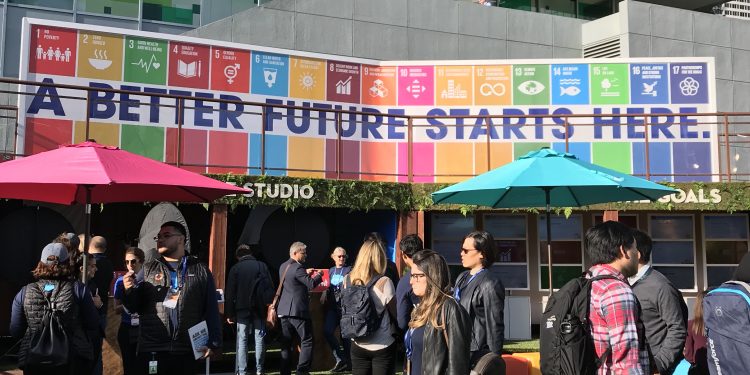
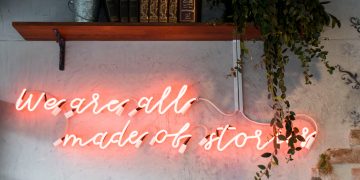
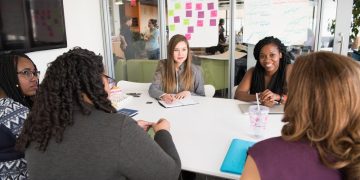
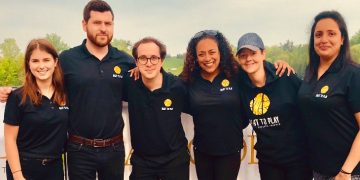
No Comment